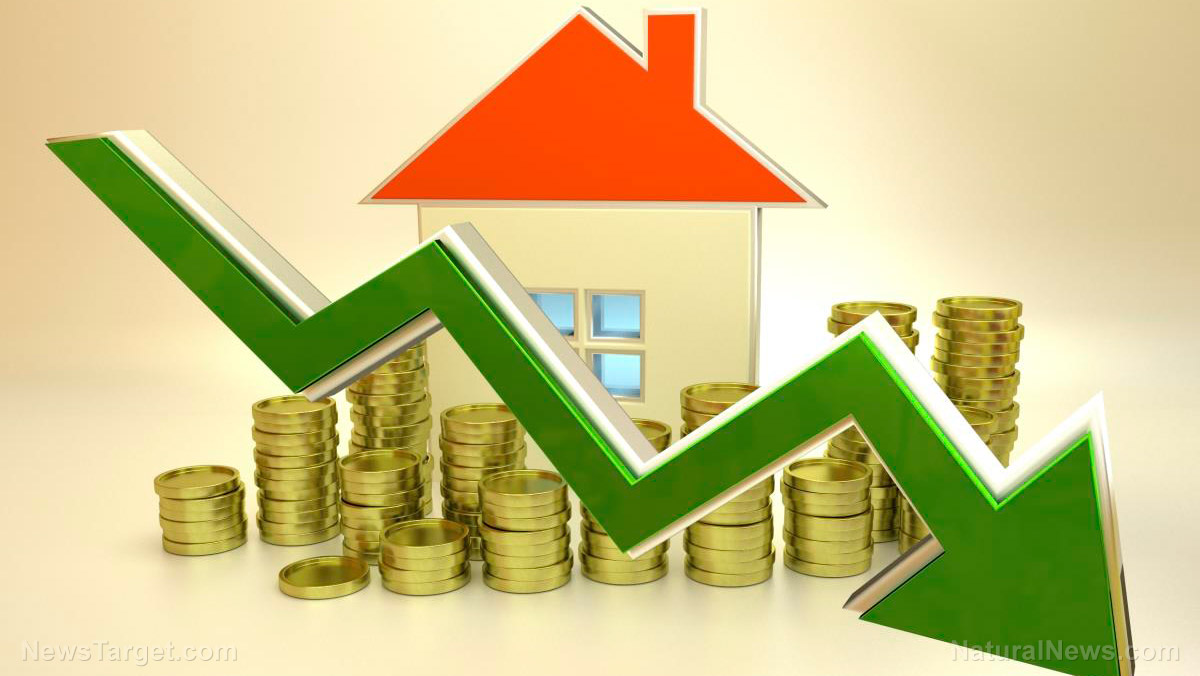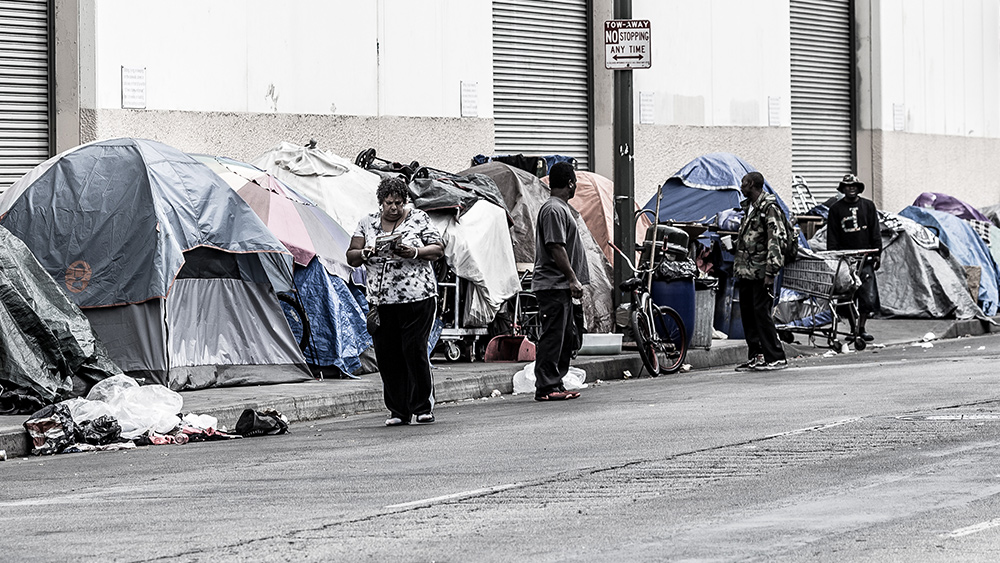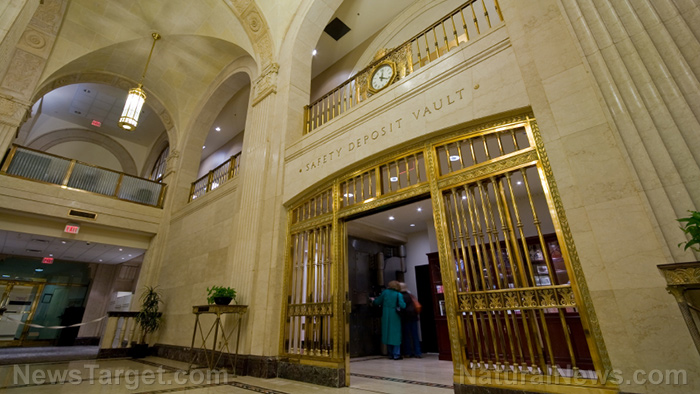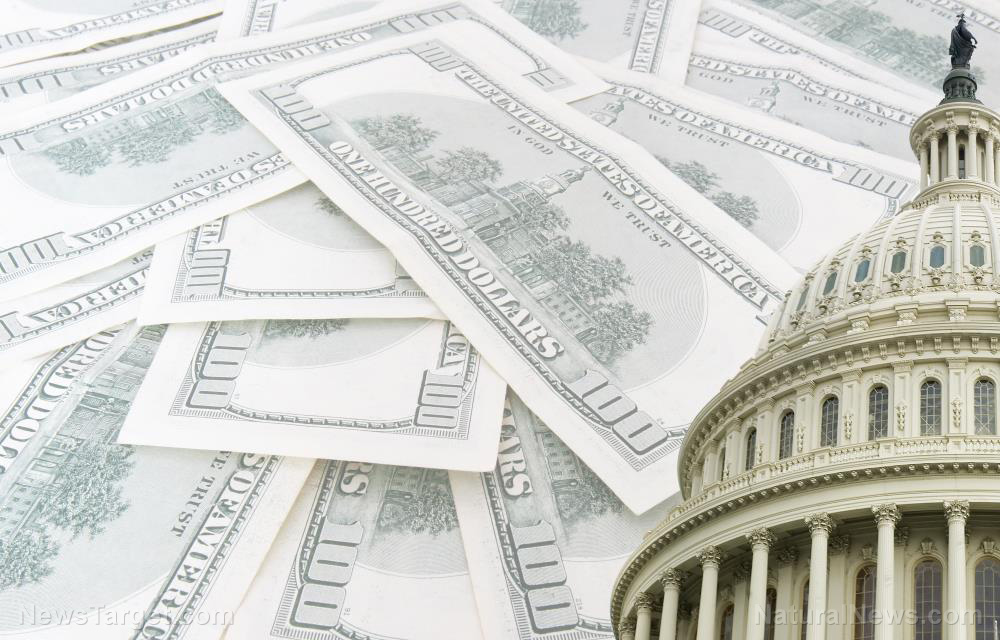To keep the bubble market INFLATED before the CRASH, Zillow is now offering 1% down-payment home loans
08/30/2023 / By Ethan Huff

An echo back to what happened in the lead-up to the 2008 financial crash, Zillow is currently offering a 1% down-payment home loan scheme to keep people buying houses in this inflationary, high-interest rate market environment.
As you may recall, the banks started offering all sorts of bizarre, subprime mortgages right before the markets went off a cliff. Some of those loans were confiscatory while others involved seriously risky adjustable rates.
To make a long story short, the whole thing imploded in time, and we are once again watching the same pot start to boil over as those who hold the purse strings of the American economy bring us into the late stage of the bubble before it bursts.
For home buyers in the Arizona market, Zillow is offering an additional 2% at closing as additional enticement to keep people buying, with plans in the works to offer the same 2% bonus offer in other markets as the crash gets nearer into view.
“The economy stinks right now,” one report states. “That’s no doubt. Interest rates are high. Many people are being boxed out of homeownership. We’re seeing the highest mortgage rates in about a quarter-century. It’s frustrating.”
“But the solution isn’t to extend a bunch of flimsy, risky loans to people who in the normal course of events simply can’t afford them right now. It’s not as if the company is giving a low-interest loan – they’re just floating a loan with a lower initial barrier to entry. And they know these people will default, so they’re in it to make as much interest as quickly as possible, before that happens.”
(Related: Back in March, a former Treasury official warned that a complete economic implosion will occur if the U.S. dollar loses its global reserve currency status.)
The availability of increasingly risky loans isn’t going to cause the crash; it’s a symptom OF the already inevitable coming crash
Not the Bee‘s take on the situation seems to be that companies like Zillow that are offering these types of risky deals are going to be responsible for causing the coming market collapse, which is not quite accurate.
You see, the markets probably should have crashed for good back in 2008, meaning the bubble should have collapsed and stayed there. Instead, the money-changers decided to reinflate the bubble even bigger this time around, which means the mother of all crashes is soon to come.
It is not so much that what Zillow is doing will cause the coming market collapse, as much as it is a symptom of the coming crash. Stunts like what Zillow is doing are a bellwether, or an omen, of what is already in the works.
Without these kinds of risky home loans being offered, the crash would likely come even sooner. By doing this, Zillow is kicking the can and actually delaying the crash, which is going to happen either way – it is just a matter of when.
Once the big collapse happens, this will likely become the catalyst that ultimately transitions the world into a new age. Will that new age be pegged by a new gold-backed BRICS currency? Will it be some kind of cryptocurrency? One thing is for sure: The new currency will not be the fiat dollar from the Federal Reserve, which is about to go bye-bye for good.
“In 2008, it was immunity and socialism for the rich, and cold, hard capitalism for the rest of us,” one commenter wrote about what really happened in 2008 to kick the can of another financial crash until, well, now.
The latest news about the coming financial collapse, which could be the financial collapse to end all financial collapses, can be found at Collapse.news.
Sources for this article include:
Submit a correction >>
Tagged Under:
Bubble, chaos, Collapse, conspiracy, debt bomb, debt collapse, economic riot, finance, finance riot, housing, housing bomb, housing bubble, Inflation, interest rates, loan, market crash, money supply, mortgage, panic, risk, Zillow
This article may contain statements that reflect the opinion of the author
RECENT NEWS & ARTICLES
COPYRIGHT © 2017 PENSIONS.NEWS
All content posted on this site is protected under Free Speech. Pensions.news is not responsible for content written by contributing authors. The information on this site is provided for educational and entertainment purposes only. It is not intended as a substitute for professional advice of any kind. Pensions.news assumes no responsibility for the use or misuse of this material. All trademarks, registered trademarks and service marks mentioned on this site are the property of their respective owners.



















